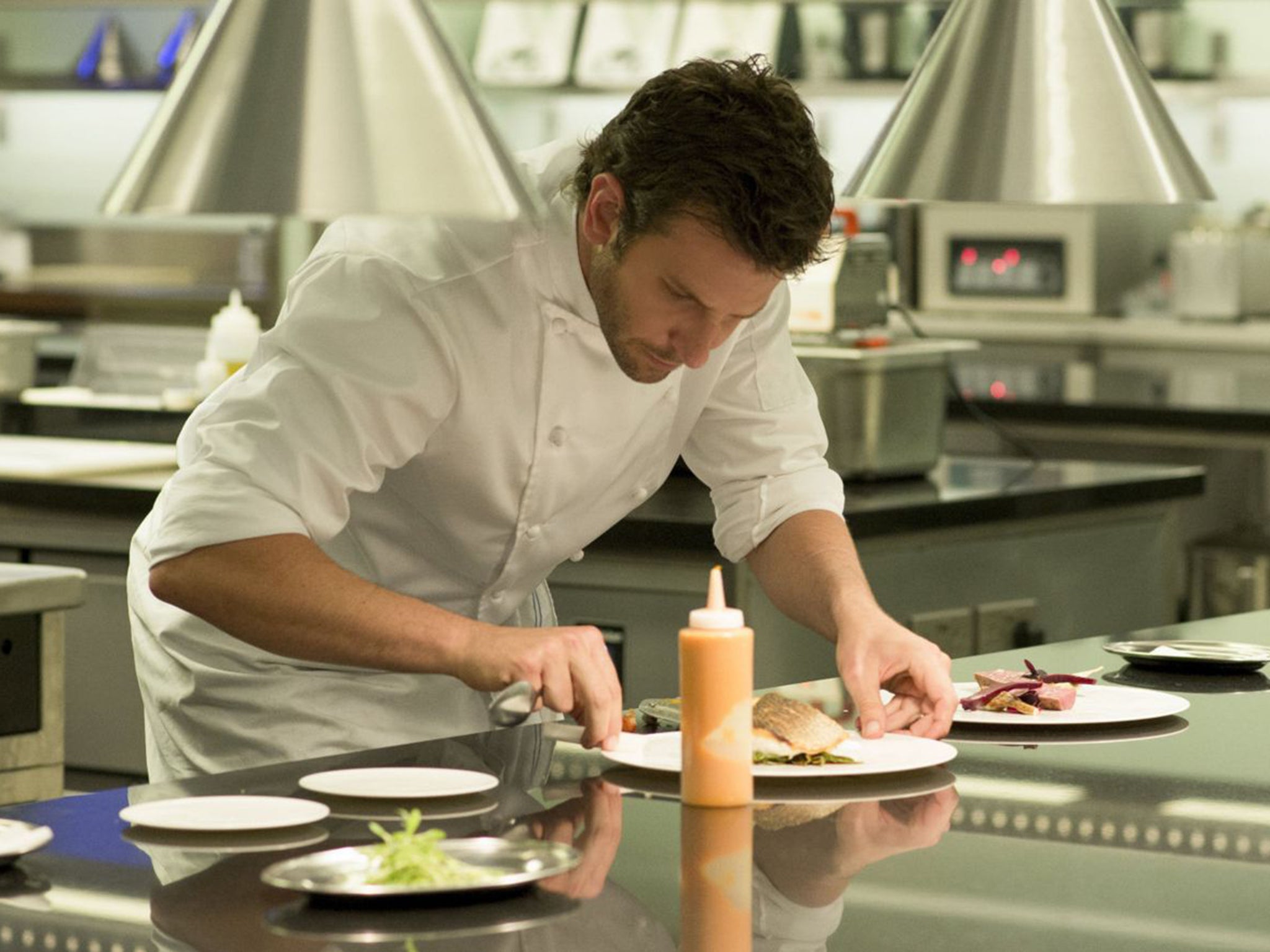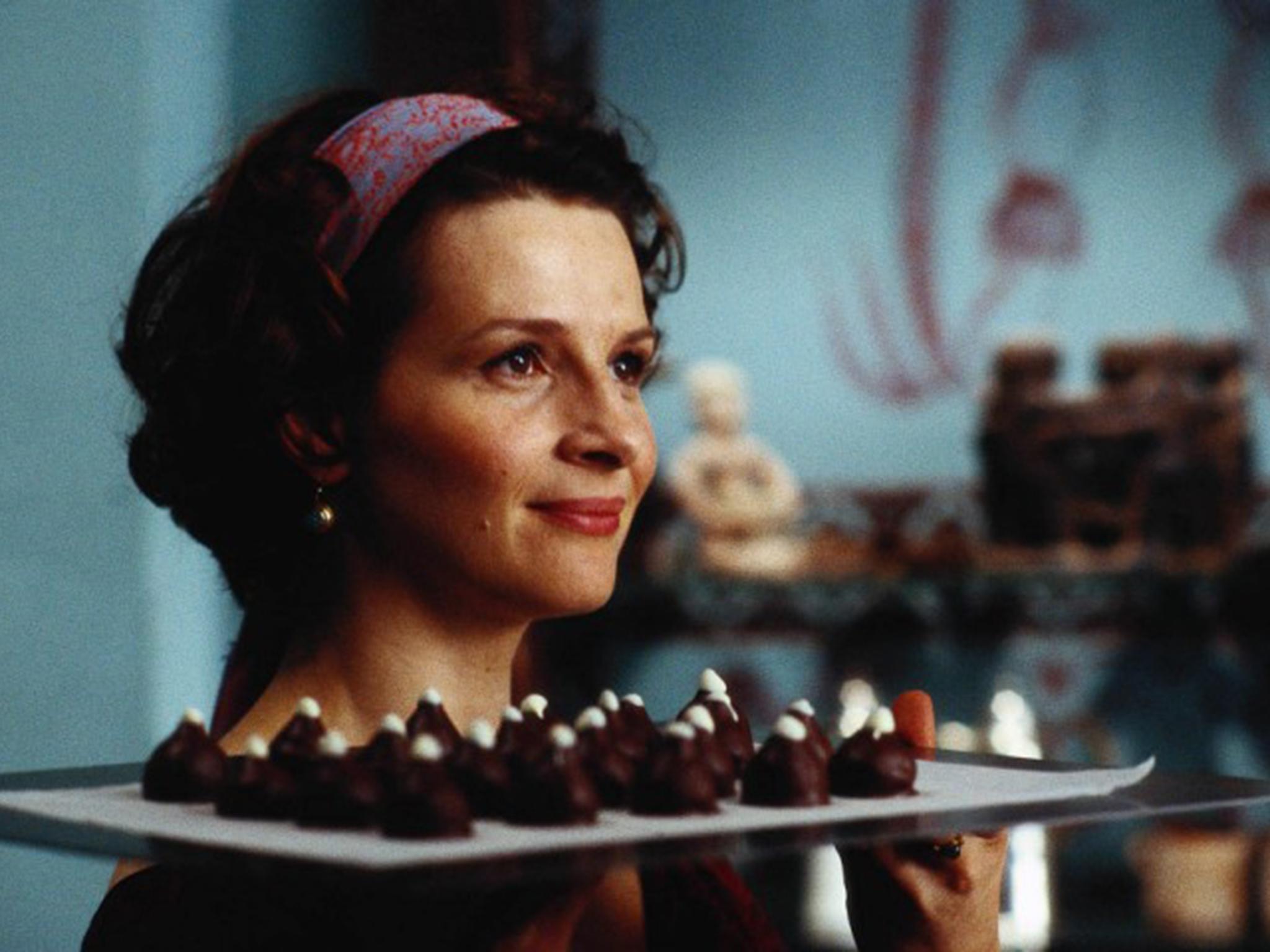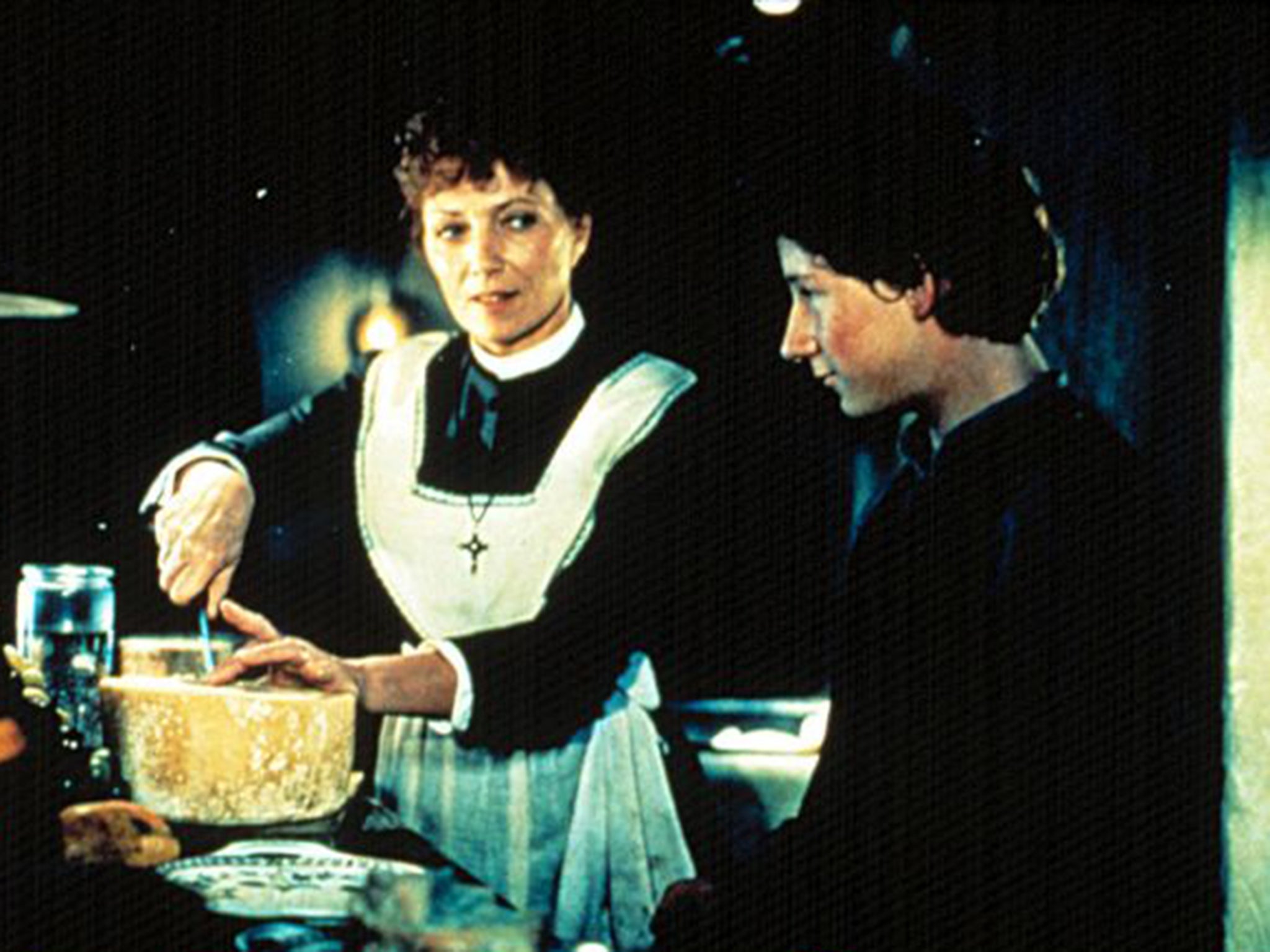Bradley Cooper is a once-successful chef who’s trying to get his career cooking again in Burnt
They’re rude, in a mood – and love their food. No wonder chefs are the secret ingredient in so many movies. As the actos plays Adam Jones, The Independent rates his rivals

Your support helps us to tell the story
From reproductive rights to climate change to Big Tech, The Independent is on the ground when the story is developing. Whether it's investigating the financials of Elon Musk's pro-Trump PAC or producing our latest documentary, 'The A Word', which shines a light on the American women fighting for reproductive rights, we know how important it is to parse out the facts from the messaging.
At such a critical moment in US history, we need reporters on the ground. Your donation allows us to keep sending journalists to speak to both sides of the story.
The Independent is trusted by Americans across the entire political spectrum. And unlike many other quality news outlets, we choose not to lock Americans out of our reporting and analysis with paywalls. We believe quality journalism should be available to everyone, paid for by those who can afford it.
Your support makes all the difference.OK, everyone, look busy; here comes the chef – the shouty alpha male, the guy in the immaculate whites obsessing over the precise triangulation of three lamb cutlets, the fuming perfectionist who throws hot pans at quaking underlings.
Remember Louis, the chef in Disney’s The Little Mermaid, the cleaver-wielding French sadist who terrorises Sebastian the Crab and smashes up his own kitchen? He’s more a cliché than a real person – but since Marco Pierre White established the breed in White Heat, and Gordon Ramsay turned it into a vaudeville act, the chef as rudey-moody‑foodie is a hot figure in modern culture. This week Bradley Cooper fills the role in Burnt, playing Adam Jones, once “the toast of Paris” with two Michelin stars, until he hurtled gutterwards in a torrent of drink and drugs. He arrives in London hoping to transform a fading restaurant through haute cuisine.
Cooper sulks, glowers and yells at his sous-chefs like JK Simmons in Whiplash; but you just know his real journey isn’t culinary. You know he’ll have to learn there’s more to personal growth than putting oyster emulsion on a scallop. The original title of Burnt was Chef, but that was bagged a year ago for a film by Jon Favreau, who wrote, produced, directed and starred, playing Carl Casper, head of an upscale LA restaurant. He is an enthusiastic sharer and feeder, matey and collegiate with his sous-chefs, but he argues with the owner (Dustin Hoffman), who wants simple, popular classic dishes and tells him: “You wanna be an artist, be an artist on your own time.”
Carl splits, returns to his native Miami where he acquires a knackered taco truck and hits the road selling Cuban sandwiches to lines of ecstatic Louisianan and Texan locals. “I get to touch people’s lives with what I do,” he tells his estranged son, “And I love it.” We have divergent paradigms here. Adam is God-like, faintly absurd (at one stage he tries to suffocate himself using a sous-vide bag) and cares about nobody but himself, while Carl is generous, open-hearted and nourishing. Movie chefs have always tended to be creatures of extremes, driven to madness or saintliness by their calling. In the last 30 years, the kitchen has become a laboratory of human transformation.

In Pope Francis’s favourite movie, Babette’s Feast (1987), adapted and directed by Gabriel Axel from the story by Karen Blixen, Stéphane Audran plays a buttoned-up Frenchwoman who comes to work gratis for two elderly sisters in a religious community in chilly 1870s Jutland. She has effectively exiled herself from her old life as head chef at the Café Anglais in Paris.
Babette wins 10,000 francs on the Lottery – but rather than return to the beau monde, she blows the lot on a banquet for the locals, who have never experienced such luxury before. The feast brings a kind of secular redemption to the community, a transformation from suspicion to joy. Babette is hailed as something more than a cook. “In paradise,” one sister tells her, “you will be the great artist God meant you to be.”
Like Water for Chocolate, Alfonso Arau’s 1991 movie of Laura Esquivel’s novel, takes to extremes the female-cook-as-transformer. Tita, the family’s youngest sister, bakes a wedding cake for her sister, Rosaura, and her husband Pedro, whom Tita should be marrying: her tears drop into the cake mix, and everyone who eats it at the wedding pukes up or suffers amorous yearnings. When she cooks another meal, a year later, her eldest sister becomes inflamed with lust and, while taking a shower, is abducted, naked and astride his horse, by an opportunistic soldier of the revolution. Whatever was in the recipe?

A diluted version of the theme was offered in Chocolat (2000) where, in 1950s Gascony, Juliette Binoche, goes head-to-head with the church and the mayor in starting up a chocolate shop at the beginning of Lent. She seems to know, quasi-mystically, what’s good for the townsfolk – mostly, chocolate is the answer, whether for spiritually repression or sexual frustration.
In No Reservations (2007), Catherine Zeta-Jones starts out as a hard-as-nails, intimidating Manhattan super-chef, who has to learn to be vulnerable so that handsome hunk Aaron Eckhart can enter her life (and take over her job).
Meanwhile, Helen Mirren, playing the Michelin-starred matron last year in The Hundred-Foot Journey, single-handedly healed racist/immigrant tensions in the French countryside by helping her Indian neighbour (and rival) to cook an omelette. When it comes to testing human character, you can forget the high school, the army or the superhero league: in modern movies, the kitchen is a more reliable index of who you are.
Join our commenting forum
Join thought-provoking conversations, follow other Independent readers and see their replies
Comments